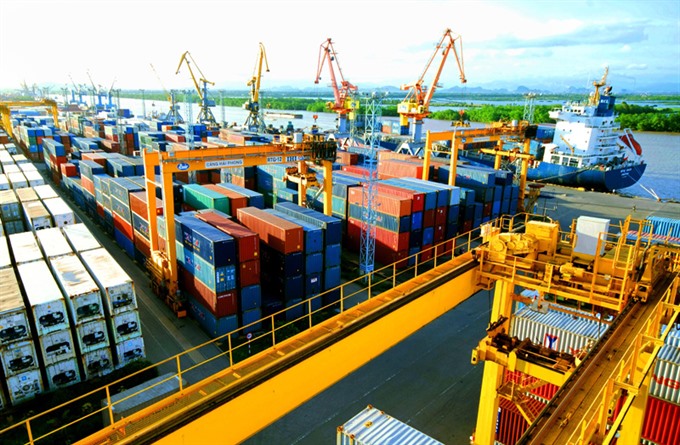Vietnamese firms should expand their partnership to at least three markets to avoid sole dependence on a particular market, said economist Pham Chi Lan.

Vietnamese firms should expand their partnership to at least three markets to avoid sole dependence on a particular market, said economist Pham Chi Lan.
She also urged the firms to provide clear and transparent filings to meet the standards of exporting markets.
Vietnamese enterprises must prove that they do not enjoy protectionism of the government and do not sell products at a dumping price level to ensure they are not affected by the anti-dumping tax policies of the exporting markets, she said.
Given the context in which US regulators have planned to impose anti-dumping taxes on Vietnamese exports to protect their local fishery and steel industries, Lan suggested firms to explore other markets and diversify their targeted markets to ensure less reliance on a sole, large market.
“A three-market strategy will ensure that a company’s export is balanced and that business will not depend on any particular market,” Lan said.
Such business strategy will help Vietnamese firms to survive and exploit new opportunities in the context of a rising global trade war, following intense statements from China and the United States against each other, she said on the sidelines of a conference co-organised by the Vietnam Executive MBA Programme in Ha Noi, University of Hawai’i, and the European Chamber of Commerce in Vietnam last week.
The United States announced a US$60 billion tariff bill on Chinese imports last week. China, in return, filed a list of 128 US products for retaliation, raising global concerns about a possible trade war.
According to Jack Suyderhoud, professor of Business Economics at the Shidler College of Business, University of Hawai’i at Manoa, recent actions of the US government are aimed at protecting its local industries, such as fisheries and steel, against threats from cheaper imports from China and Viet Nam.
Rising protectionism will encounter objection from those benefiting from free trade, Jack said, adding that the US government should notice how important the win-win principle is and how it exists in every trade deal.
Lan urged local firms to strengthen their competency so that they can take advantage of benefits brought about by free trade agreements, to which Viet Nam must comply, and encounter less negative impacts from a possible global trade war.
Besides the US and China, Vietnamese firms should increase its influence in other markets, such as the European Union, reducing its dependence on the world’s two largest markets, Lan said.
“There are no winners in a trade war,” she said, adding that the United States and China are two of the largest trading partners of Viet Nam, thus, “we need to expand our trade relations to different markets to boost the country’s economy”.
“The establishment of the CPTPP (Comprehensive and Progressive Trans-Pacific Partnership), signed on March 8 without the United States’ participation, is a good way to deal with the unpredictable policies of the United States and China at the moment,” Lan said.
The CPTPP deal will help other economies to get to know each other, increase their cooperation and protect their economies, offsetting the damages caused by US protectionism and China’s responses, she added.
“CPTPP is proving to be attractive to other economies that are not partners to the deal, such as South Korea and the United Kingdom,” she said. — VNS





